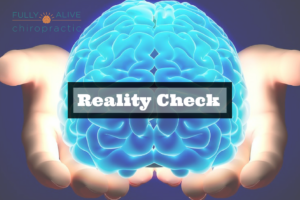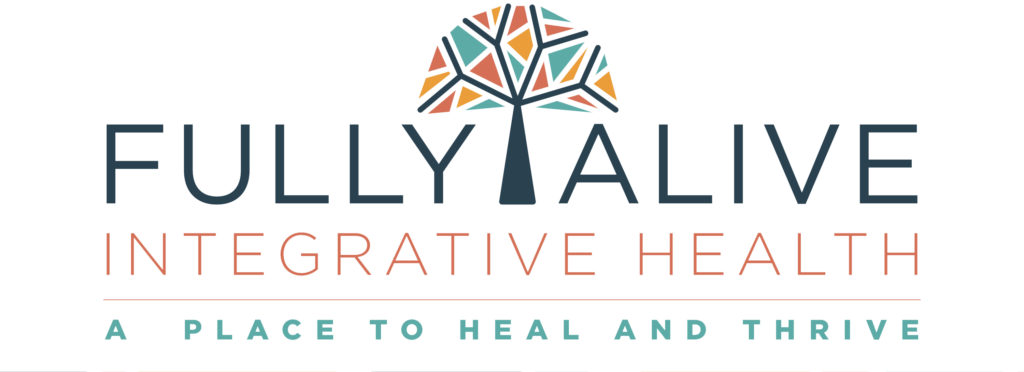
The opioid epidemic is one of the worst health crises in modern U.S. history.
Most people know at least one person who has been affected by an opioid addiction. Here in Dayton, we’ve had more opioid overdose deaths than any other city in the United States! It’s been well documented that a major cause of the opioid crisis was the over-prescribing of pain-killing drugs (opioids). Well-meaning doctors would prescribe highly addictive opioids for pain management, and after the prescriptions ran out, patients would turn to heroin to satisfy their cravings.
Pain relievers are also one of the top selling over-the-counter medicines. Aleve, Ibuprofen, Advil, Motrin, Tylenol, and Aspirin are taken by more than 30 million people a day. These are all pain relievers, and most people think they are safe to take pretty much any time. Have a headache? Low back pain? Fever? Sore shoulder, knee, wrist? Heck, I used to take a couple of Ibuprofens before football games in high school because I thought it would help me play better since I wouldn’t feel any pain. But I, like many, had no idea there were potentially harmful side effects from taking these drugs.
So what are some of the side effects?
One class of over-the-counter pain relievers, called NSAIDs (Non-Steroidal Anti-Inflammatory Drugs), work to decrease pain and inflammation. Yet they can cause damage to your stomach and intestines by producing ulcers and internal bleeding. NSAIDs also have been shown to have an increased risk of kidney failure, heart failure, heart attack, and stroke. These heart risks show up with only short-term use and the risk grows with increased used. NSAIDs should also not be used in children who have the flu or chicken pox as it can lead to permanent liver and brain damage. They also can increase intestinal permeability and deplete nutrients. Intestinal permeability is now known as one of the main triggers of autoimmune disease. Lastly, they can disrupt reproductive function. A new study even shows that taking Ibuprofen causes decreased sperm and testosterone production in men, and can inhibit ovulation after just 10 days of use!
Another popular over-the-counter pain medicine is Tylenol (acetaminophen). In fact, acetaminophen is the most common drug ingredient, being used by 52 million people each week, or 23% of adult Americans! It is commonly known that Tylenol damages the liver, but did you know that just one dose of Tylenol wipes out your liver’s main antioxidant, glutathione? That is one of the reasons why acetaminophen overdose is the #1 cause of calls to poison control and is responsible for half of all acute liver failures. It also has been shown to cause toxicity issues with the heart, intestines, and kidneys. Use of Tylenol can also lead to what researchers are calling, “zombification,” because of the way it blunts emotions within just one hour of use. Acetaminophen use also has grave consequences when taken during pregnancy. It has been shown that taking Tylenol while pregnant can lead to neurodevelopmental problems with behavior, communication, and motor parameters.
So what do we do?
Because of the opioid epidemic, the American Academy of Physicians recently came out with new guidelines for people with low back pain that can often be extrapolated (generalized) to other areas of the body with pain. The first line of action is non-pharmaceutical. This means the first thing you should do is see a chiropractor, acupuncturist, physical therapist, or masseuse. Exercise, yoga, mindfulness meditation, tai chi, laser therapy, heat, are also first line action steps to help with pain. If these fail after a couple of weeks, then they recommend trying NSAIDs and muscle relaxers as Tylenol does not work for low back pain. Then, and only as a last line of defense, should opioids be used.
Vitamins and herbs have been found to decrease inflammation and help with pain as well.
Fish oil. Most people know the heart benefits of taking fish oil, but most do not know that it works on the same enzymes as NSAIDs to decrease pain and inflammation. However, the dosage required is greatly increased from a maintenance heart health dose. Because this can also thin the blood, you should only increase the dose under the guidance of your healthcare practitioner.
Turmeric and curcumin. Many studies demonstrate the wide-ranging benefits of curcumin, including multiple articles that shows it works as well as NSAIDs to alleviate pain from knee osteoarthritis and PMS without any of the side effects. The next time you have a headache, try taking 1-2 grams of curcumin.
Studies show that people whose main doctor is a chiropractor have a 30% decreased risk of surgery for back injuries, spend 85% less money on drugs, and have 20% reduction in overall medical costs for care on low back pain. I love that the government and other medical professionals are starting to recognize the great care that chiropractors give. If you are tired of being in pain and relying on medications, give our office a call. We would love to help you get back to living life more fully alive!






